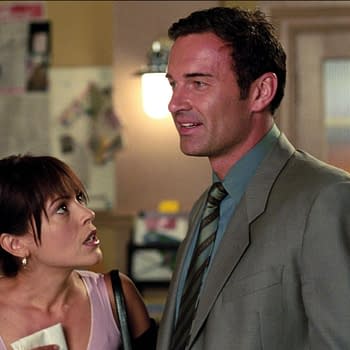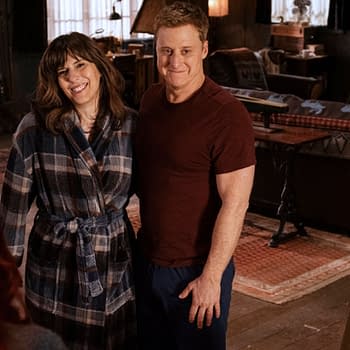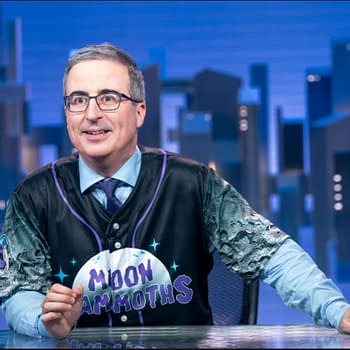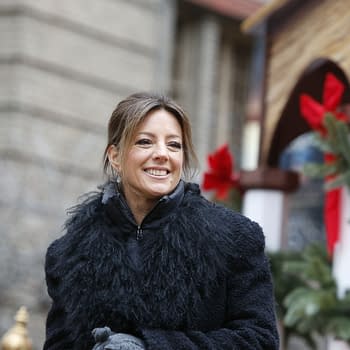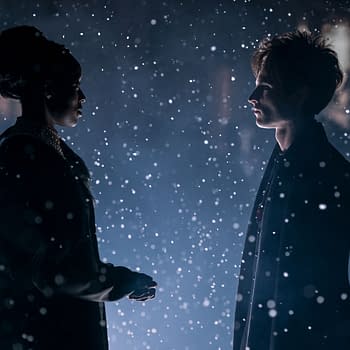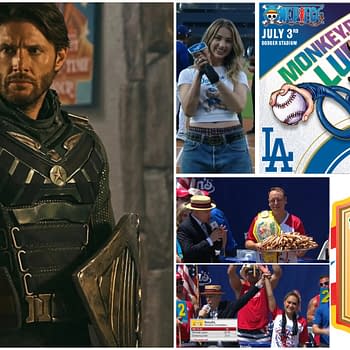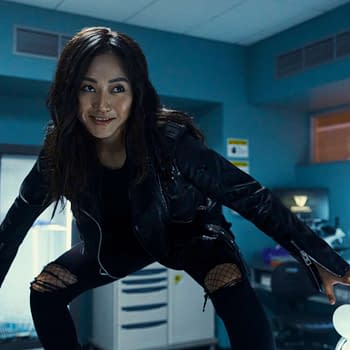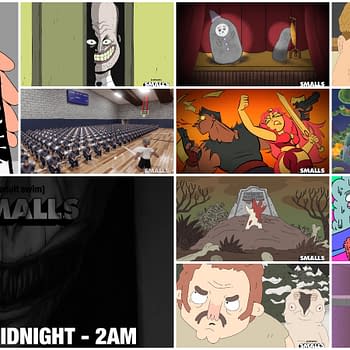Posted in: FX, TV | Tagged: exclusive, fx, hulu, interview, Michael Anthony Brown, rob mcelhenney, ryan reynolds, Weclome to Wrexham
Welcome to Wrexham Editor on Creating Narrative Themes for Docuseries
Editor Michael Anthony Brown spoke with us about his work on FX's Welcome to Wrexham and working with Ryan Reynolds & Rob McElhenney.
Article Summary
- Michael Anthony Brown details editing FX docuseries "Welcome to Wrexham".
- Ryan Reynolds & Rob McElhenney’s serious commitment to the show & the team discussed.
- Soccer storytelling trends highlighted, tapping into a previously "untapped resource".
- "Welcome to Wrexham" uses unique thematic approaches in season two.
If there's something that makes the creative duo of Ryan Reynolds and Rob McElhenney such forces in the entertainment industry, it's not necessarily their humor, business savviness, charming charisma, or even their rugged good looks. It's their ability as unsung heroes to bring out others at their most authentic. Sometimes people gloss over how much heart they put into their biggest signature projects are in Reynolds' Deadpool franchise and McElhenney's It's Always Sunny in Philadelphia. What some conceive as perhaps one of the most unlikely collaborations was as sports franchise owners in the FX docuseries Welcome to Wrexham, which follows the town's beloved soccer club Wrexham A.F.C. from the coaches, players, and their families. Editor Michael Anthony Brown, who's worked on various sports documentaries covering motocross, professional wrestling, UFC, and Poker, spoke to Bleeding Cool about how his initial doubts, the growing appeal for sports documentaries, and the lives of professional athletes, and capturing the moments that go beyond the game.
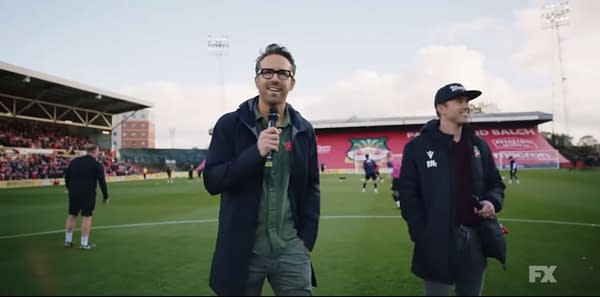
Welcome to Wrexham: How Michael Anthony Brown Helped Capture a Town's Story
Bleeding Cool: How did you get involved with 'Welcome to Wrexham?'
Brown: Oh, gosh! I think [it was] 2021. I arrived back to L.A. after the pandemic, and I got a call from a good friend of mine saying that there was a seat open on the show with Ryan Reynolds and Rob McElhenney, and it would be right up my alley, so I joined. They had been in production for the better part of two years, and I came in midway in the editing process. It was still a show trying to find its voice, and I was able to jump in and, coincidentally, give it a nice little push and bring in some of the themes that I've worked in sports for a long time.
How does a project of this nature differ from the other work that you've been involved with?
I come from a heavy sports documentary background, and the nice thing about this project is that we're encouraged to break the rules a bit and tell stories using devices that I'm not usually able to go forth with. Comedy isn't exactly something that's always adhered to traditional sports stories of triumph and heartbreak. It's a nice thing to be unleashed to use all the devices and be encouraged by Rob and Ryan to do so.
When picking their brains, what was your impression of working with Ryan and Rob?
The one thing that screamed from the beginning was though they have their silly-natured exterior, they were completely committed and serious about this project. Everybody I talked to outside was like, "Is this a joke? Is this for real? Are they doing this? Are they sincere about it?" They're 100 percent serious and it comes down to the people that they are as humans and identifying that some places and people have stories to tell. This was a nice vessel, an avenue for them to bring out stories within the everyman.
There's been compelling interest in soccer storytelling with the success of 'Welcome to Wrexham' and 'Ted Lasso.' Was there something that you noticed as far as trends in productions go from an industry standpoint?
There's a trend when it comes to sports in general. This thing opens the world to football or "soccer," as we know it here in the States, it's untapped in that regard of knowing what that world is like. We know what NFL life is like, what the players are like. Maybe stereotypically, in baseball, the players tend to be a little goofier and seem like they play pranks on each other all the time. The world of football is an untapped resource.
Regarding 'Wrexham' in some ways, we're opening the world up a little bit to show because when I worked in sports before, sometimes players are weary to let their guard down in the documentary format, especially if you've got cameras following you around. "What are you going to do with this?" You've got somebody who is known for being funny or making light of people poking and ribbing [at each other], it can be uncomfortable. With this project, what we were able to show was players letting us into their worlds. We're telling their hearts. We're telling their children's stories, their family life dynamics, some of the dramas, and the pains as well as the joys of being a professional athlete.
Were there any works out there that helped prepare you to acclimate yourself to that soccer life? Or was it something you already know what you're going to do right away?
I've done most other sports other than soccer. In terms of my documentary work, it was something that we were coming into when I originally joined the project. There was a tendency to… 'Waiting for Guffman' was a reference that we were trying to at least bring out the quirkiness of the town, but we shied away from that style of editing because we found that there was a natural rhythm of comedy and earnestness within the community that we didn't need to push. You don't need that. You don't need to bring out…it's endearing these characters. You fall in love with them, and this process on this show was about sitting back and letting the footage develop and evolve as it did.
Since this is kind of your most concentrated work in episodic television, what do you feel like you've gained from this experience you feel is most invaluable?
The storytelling in terms of following something as concrete as an A-to-Z story, that is, the story of a team going through a season and adding in the complexities of the other characters' lives, going alongside and creating a more complex weave of a story rather than following day-to-day is like a countdown. One thing that Rob pushed for, especially on season two, and we'll probably see some more of that if these three are theming episodes to help accentuate the emotion within the episodes. That's something that we did well in season two is to give each episode a direct theme. It was a challenge to find the through line and make sure that the audience was still aware of where we were in the season and what the team was going through as well.
Was there a particular sequence and postseasons that was maybe a little more difficult than usual compared to others?
In terms of "difficult," and I don't believe in the word, but something that we wanted to handle appropriately is the [second season] second episode that we had, which was telling the story of Albi and Milly Tipping, two town characters, the son of Paul Mullin, the star striker, and Albi, who is on the spectrum. We wanted to treat that episode in a way that can make people feel the joy and the love that these families have for each other. One thing that we did nicely is at the end of the episode, when we were able to cut off the music and sound, and it ends, you're in the perspective of the mind of Albi, who was in the quiet zone. That whole episode ["The Quiet Zone"] was challenging in that we wanted to do it justice.
Welcome to Wrexham will return for season three. You can stream the episodes on Hulu.






